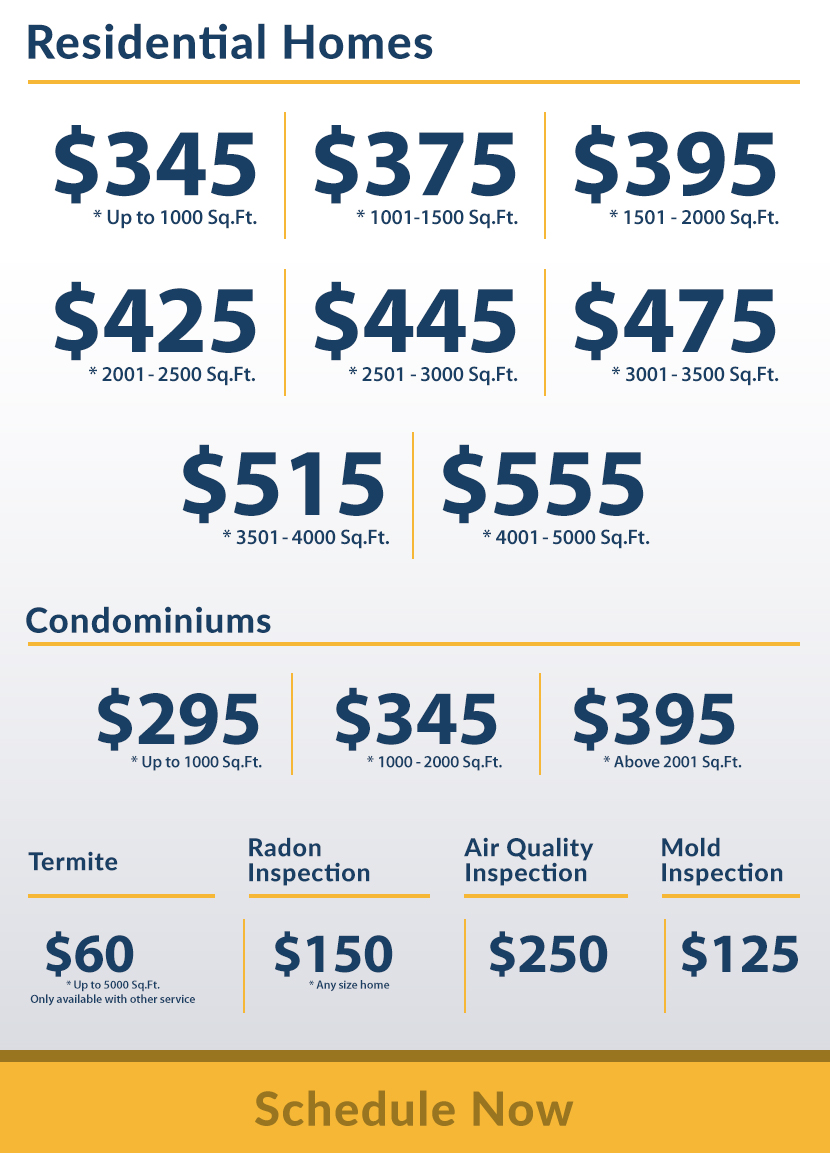Home Inspection Cost In Louisville, KY
What is a Standard Home Inspection?
Louisville has a large number of historic buildings, which contributes to the city’s charm but also represents some potential problems for property owners. This is why calling HomeMD is well worth the home inspection cost in Louisville, KY. Our experts will conduct a full examination of your house and give you a detailed analysis of its condition. Because we can find signs of issues before they have a chance to develop into bigger concerns, we’re sure you’ll find your home inspection cost to be lower than committing to costly repairs in the future. In addition to our expertise and capabilities, you’ll also benefit from our competitive home inspection pricing.
If you’re planning to purchase a home in the near future, having a professional inspection performed by certified experts is crucial. We can tell you exactly what you’re getting into, so you can take the keys with confidence knowing that every element of your new house will be as it should. If any concerns do arise during the inspection, you’ll know what needs to be done to resolve it. In many ways, your home inspection fee will be a down payment on your peace of mind as you move into your new house. The house inspection cost will certainly be less than if you have to make major repairs or renovations down the road. You can count on our house inspection prices to be reasonable. For more information about home inspection costs in Louisville, KY, from our professionals, take a look at the chart further down the page.
A NACHI certified home inspection includes roofs, gutters, downspouts, vents, flashings, skylights, chimney and roof penetrations, siding, flashing, trim, exterior doors and decks, stoops, steps, stairs, porches, railings; eaves, soffits, fascias; basement, foundation; accessible crawl spaces; heating system; central cooling equipment; water heating equipment; absence or lack of insulation; toilets, sinks, tubs, showers, fixtures, faucets; visible fuel storage systems; sump pumps; plumbing leaks; main fuel shut-off valves; service line and meter box; main service disconnect, panels, breakers, fuses; overloaded circuits; service grounding and bonding; switches and receptacles; light fixtures; AFCI and GFCI receptacles; smoke detectors, fireplace and dampers; indication of active water penetration; insulation and ventilation; garage doors and openers, and much more.

